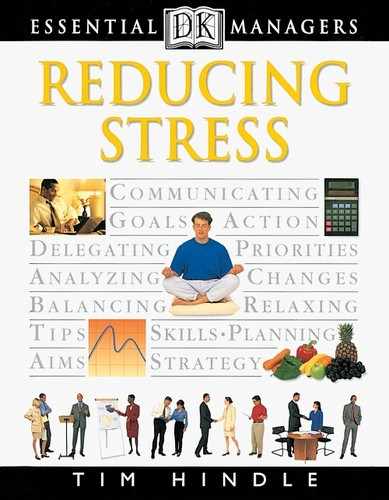Coping with Daily Life
Many people believe that they have no choice but to work all the hours available. This belief may be reinforced if work is used to escape from other problems. Be aware of your needs, and try to develop a fulfilling private life as well as a career.
Building a happy family life and establishing a close circle of friends can prove to be a successful way to avoid stress.Forming close bonds

Dealing with change
Life events can suddenly disrupt a happy balance between work and home. A change of job is an obvious example; events such as marriage or the death of a parent may also undermine this balance.
When stressful changes occur, take time to reassess your lifestyle. Draw up a list of your priorities. You may know what is important in your life, but you may have difficulty in accepting or seeing the implications. “My children are the most important thing in the world to me”, says many a manager who sees them on just one night a week. Use change as a positive way to reorder your life.
Research has revealed that the death of a partner is top of the list of life’s most stressful events. Even positive events such as marriage can cause tremendous stress. Experiencing a number of major life events in a short period of time greatly increases the risk of stress.Measuring stress

Coping with life events
Aside from death and divorce, there are a number of other life experiences that can cause high stress levels. These include moving house, having a baby (for both mother and father), taking a job in a foreign country, and retiring from work. Such events all involve major change, a break in daily routine, and often a series of goodbyes.
To minimize the stress caused by such an event, do not pretend that it has not happened, but try to reduce the uncertainty involved. Visit the foreign posting before you go. Take retirement gradually by working two days a week initially. Take at least a week off work to move house. Use up any paid or unpaid leave. Take time and care to say goodbye.
Commuting to work
Our daily journeys to and from work are among the most stressful regular events in our lives. Worries about punctuality, traffic jams, and overcrowded trains and buses are experienced on a repeated basis, and over weeks and months can lead to an accumulation of stress.
Think carefully about whether you can postpone your journeys so that they occur outside the usual “rush hours”. If possible, work at home for an hour or two in the morning. Arranging flexible working hours allows you to avoid peak travel times by arriving at work late or early, and reduces the stress linked to time pressure and punctuality.
If it is important that you arrive somewhere at a specific time, do not travel by road. Today’s traffic jams make the car the least reliable form of transport – as well as the most anti-social. Use an alternative method of transport where possible.Commuting by car

TIP
Arrange to have lunch with your partner or a close friend once a week.
TIP
Listen carefully to what your children say to you.
TIP
If you live near your work, walk or cycle to work a few times a week.
TIP
Learn to talk openly about your emotions and feelings with close friends and confidants.
